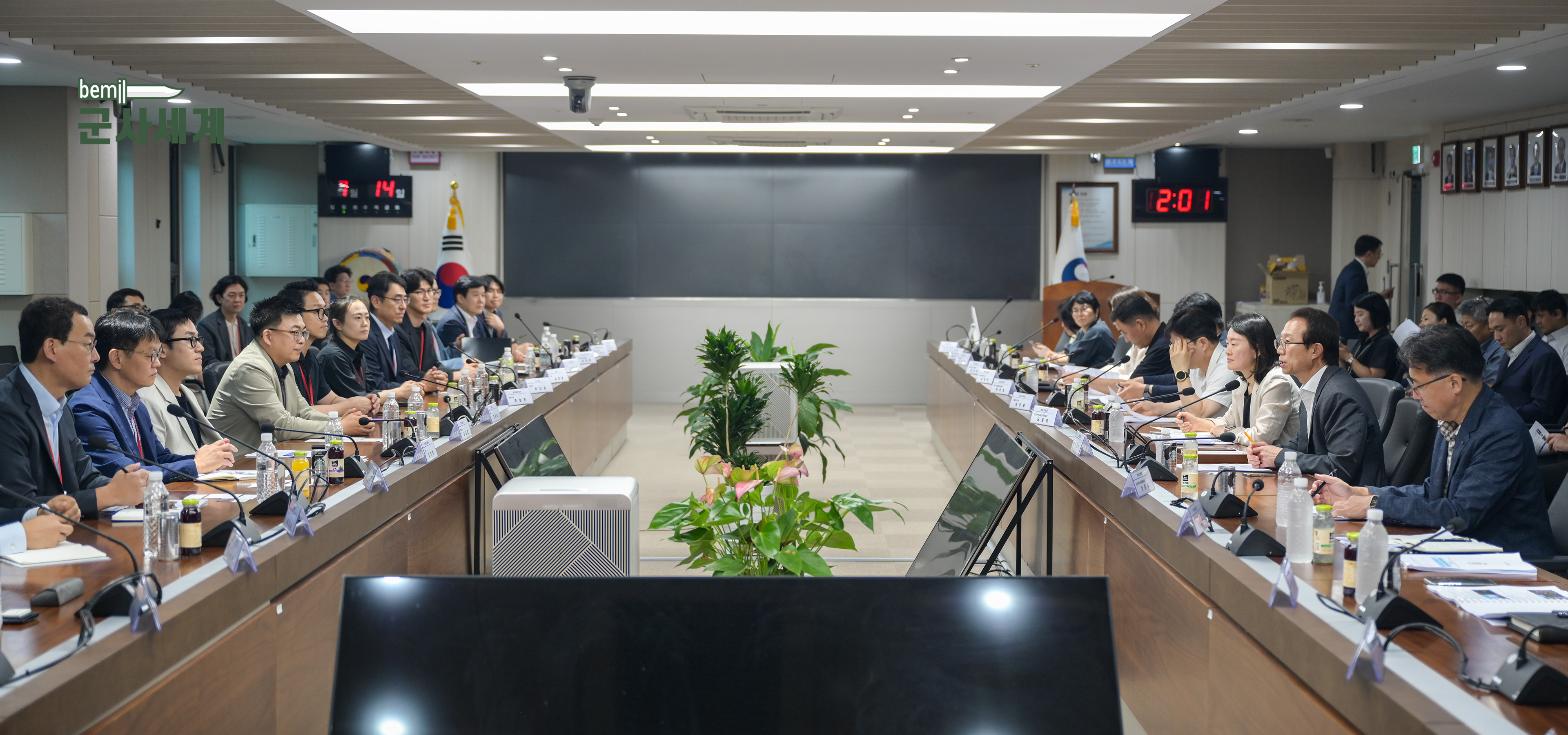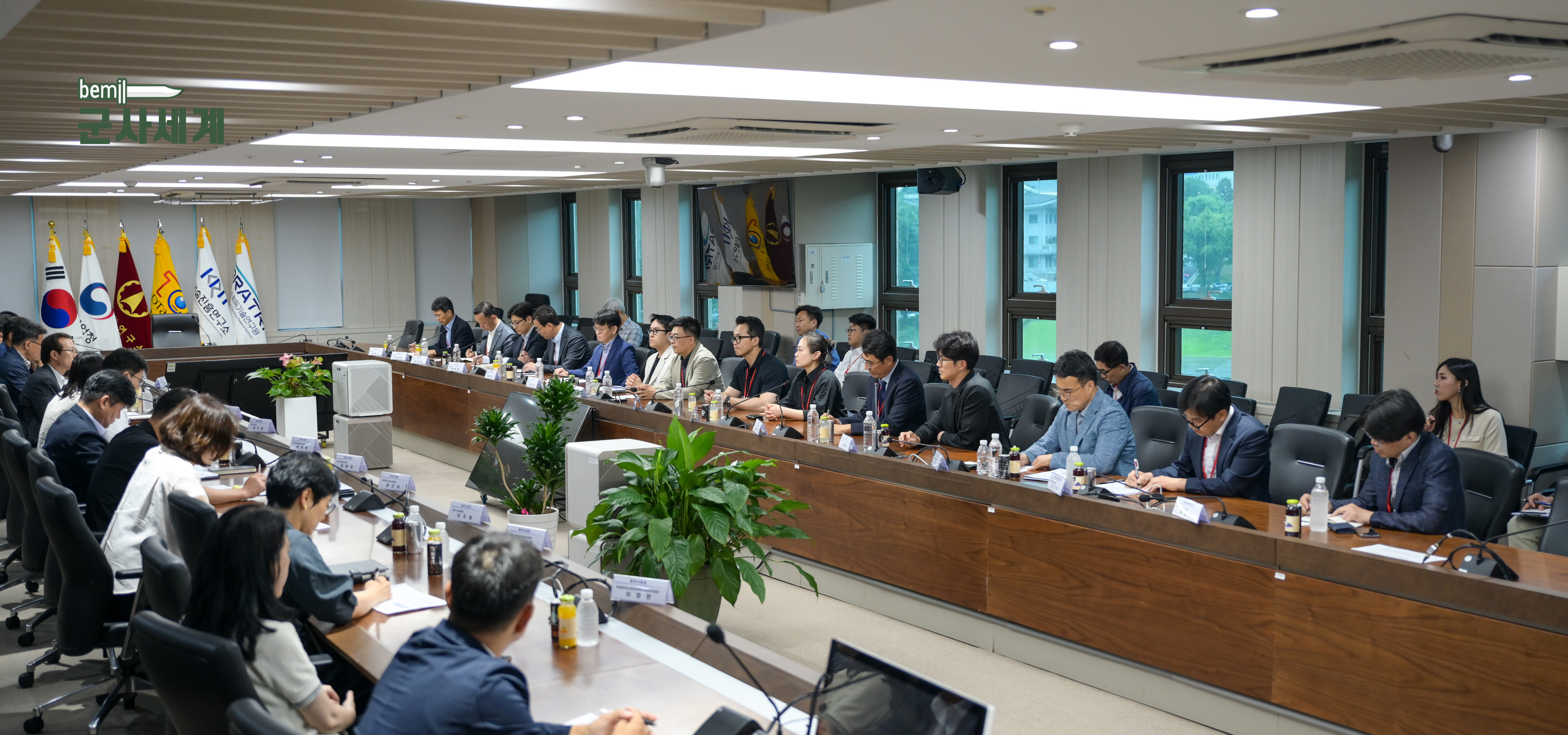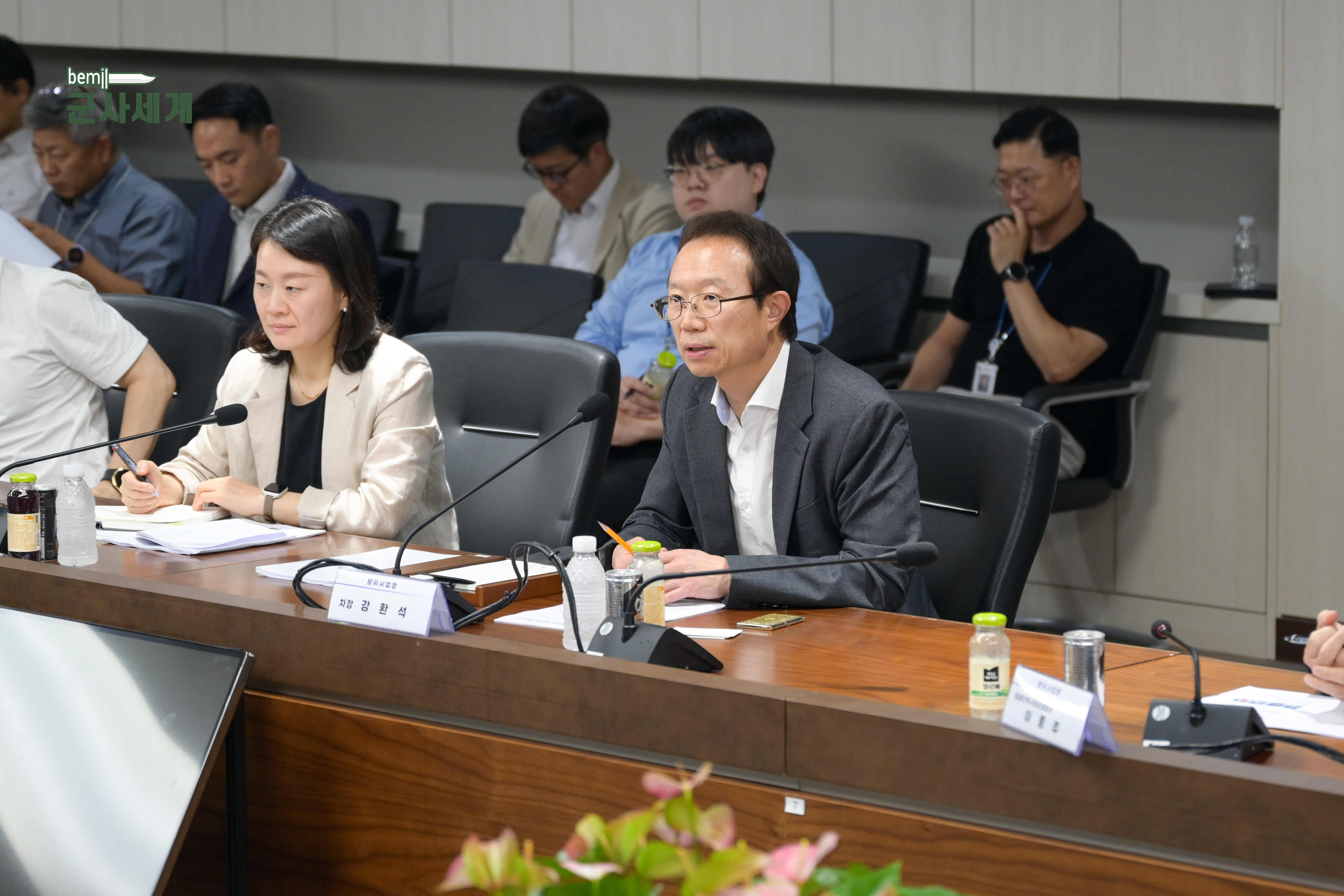


The Defense Acquisition Program Administration (DAPA), led by Commissioner Suk Jong Gun, held a roundtable on Monday at its Gwacheon headquarters to explore effective policy directions through public-private cooperation and by listening to the challenges faced by SMEs in the field of defense artificial intelligence (AI).
The roundtable was organized in response to AI’s emergence as a game changer in future warfare and its increasing role as a core technology in the development and operation of advanced weapon systems. SMEs currently engaged in AI-based defense projects were invited to share the status of their technologies and to communicate their field-level concerns directly.
A total of 11 companies, including those selected under the Defense Innovation Company 100 program for their AI-related capabilities, participated in the event. Each company introduced its AI technologies and engaged in in-depth discussions on key challenges faced during the implementation of defense AI projects. These included security regulations, a lack of testbed environments, and rigid acquisition procedures.
The Defense Innovation Company 100 is a program that selects outstanding small and venture enterprises in five core sectors of advanced strategic defense industries—space, semiconductors, artificial intelligence (AI), robotics, and drones—and fosters them as specialized small giants.
Participating companies highlighted the significant difficulties they face in accessing actual military data due to strict security policies. They emphasized the need to establish a legal and institutional framework to facilitate the use of such data for the development of weapons systems. They also proposed practical improvement measures, such as standardizing and controlling data quality, introducing more flexible acquisition processes to adapt to the rapid evolution of AI technology, and developing AI models tailored to defense applications.
Deputy Commissioner Kang Hwan Seok stated that the roundtable was a meaningful opportunity to directly hear about the obstacles and improvement needs in the field of defense AI. He added that DAPA will promptly promote close cooperation with relevant government bodies to establish the key foundations for the defense AI sector, including improved data utilization systems, enhanced security policies, and more agile acquisition procedures.
DAPA also announced its continued commitment to fostering an AI-centered defense environment, where technological advancements and institutional reform go hand in hand. To that end, the agency plans to expand its communication channels with the private sector, including public-private roundtables and on-site visits.














Comments0